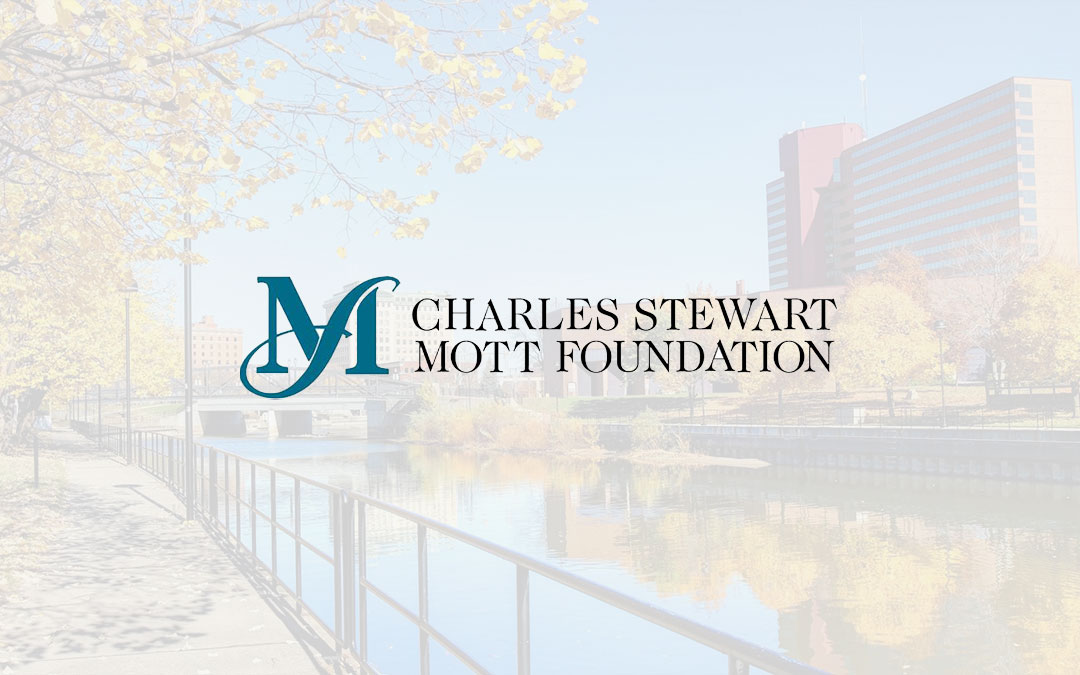The Charles Stewart Mott Foundation granted a total of $1.75 million to support participation by eight Flint area schools in the newly created Network for School Excellence. One of several initiatives led by the Flint Center for Educational Excellence, the Network was created to bring together a cohort of schools that will collaborate to improve educational outcomes for Flint kids.
A total of seven grants — $250,000 each to be used during the current school year — were awarded to five school districts to support initiatives at eight schools. One of the grants will support participation by two Westwood Heights schools that are coordinating efforts.
The eight schools – and their corresponding districts:
- Dailey Elementary | Beecher Community School District
- Doyle-Ryder Elementary | Flint Community Schools
- Durant-Tuuri-Mott Elementary | Flint Community Schools
- Dye Elementary | Carman-Ainsworth Community Schools
- Flint Cultural Center Academy | Public School Academy
- Hamady and McMonagle elementary schools | Westwood Heights Schools
- International Academy of Flint | Public School Academy
The grants are intended to provide more resources to create innovative solutions that will help improve student success, and school leaders have flexibility in how they can use the grant dollars.
“To support Flint kids, no matter where they attend school, we have to think outside of the box. The Flint Center’s Network for School Excellence is a great example of that,” said Ridgway White, president and CEO of the Mott Foundation. “This kind of collaboration among schools and educators is exciting and truly needed in order to make a difference for our students.”
The Flint Center for Educational Excellence was launched earlier this year with grant support from Mott to the Community Foundation of Greater Flint. The Flint Center leads and coordinates six initiatives — community education, afterschool programming, the Flint Early Childhood Collaborative, a Flint parent collaborative, a community council on education and the Network for School Excellence. Schools that are part of the Network also will have support through afterschool programming and the community education initiative.
Schools invited to participate in the Network had to meet certain criteria, including serving a significant number of Flint kids who also are majority Black or Latino and economically disadvantaged. Each school also had to identify core instructional challenges and commit to working collaboratively with the other schools and leaders to innovate, demonstrate and replicate initiatives that help improve educational outcomes for Flint kids.
“There are many dedicated teachers and educators already working toward the same goal — to help Flint kids thrive. Creating the Network for School Excellence allows us to leverage the expertise of educators, harnessed through years of experience, to help our children grow and get the best education regardless of where they attend school,” said Ja’Nel Jamerson, executive director of the Flint Center. “We look forward to learning from each other’s challenges and successes to create innovative solutions that improve outcomes for all Flint kids.”
Schools will share data and feedback among the group and with Flint Center staff in order to design strategic initiatives to help improve educational opportunities and outcomes for students.
“Our status as a Network School and a recipient of this funding empowers us to dream, plan and implement innovative strategies that will significantly benefit our scholars,” said Doyle-Ryder Principal Natoya Coleman. “Often, the focus is on limitations, but we are embracing possibilities, which is incredibly exciting. I envision this as a historic partnership, and I am immensely grateful that my scholars at Doyle-Ryder Elementary will be among the initial beneficiaries of this remarkable initiative.”






